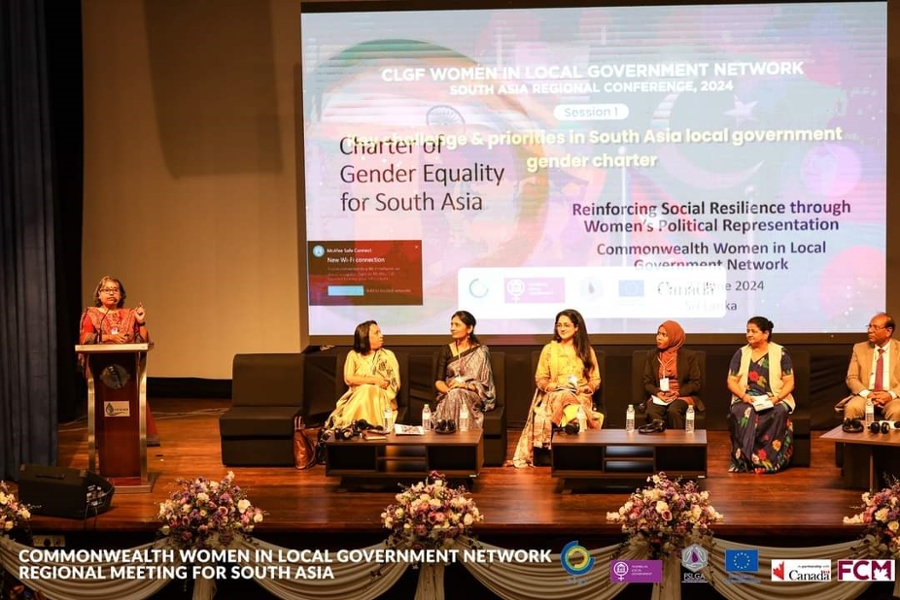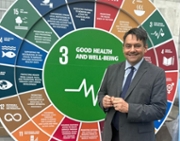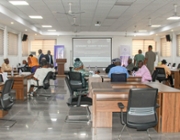CLGF support for women in South Asia

14 July 2024
The focus of empowering women moved to Asia when CLGF hosted the Commonwealth Women in Local Government South Asia Regional Meeting in partnership with the Federation of Sri Lankan Local Government Authorities (FSLGA) in Colombo from 25 to 27 June.
The conference, entitled Reinforcing Social Resilience Through Women’s Political Representation brought together representatives from across Bangladesh, India, Maldives, Nepal, Pakistan and Sri Lanka, to discuss the key challenges and priorities for increased representation of women in local government in the region.
Charter for gender equality
The conference provided a platform to discuss and refine the Local and Regional Governments’ Charter for Gender Equality in South Asia. This is an initiative that CLGF has been working to develop for the region, in partnership with PLATFORMA, as part of its ongoing work and commitment to improving gender parity and active inclusion of women in decision-making. The Charter looks to support and build on efforts of CLGF and ComWLG member institutions, their local partner institutions and local governments in South Asia to advance social, political and economic rights of women.
Enabling better opportunities for women
The Charter focuses on the key functions of local government, and the key areas where local government can enable better opportunities for women, such as access to entitlements, better living conditions, resources and services. It sets out obligations of the signatories to mainstream gender equality comprehensively in all matters of local governance, strengthen the role of women in local decision making, including in the political and technical institutions of local government itself, and to promote further equality in social, political and economic rights.
The Charter includes six focal areas:
- leadership and local governance;
- urban and local planning and sustainable development;
- social transformation and health care systems;
- economic empowerment;
- ending violence; and
- climate change, disaster risk reduction, relief and rehabilitation.
In addition, it looks to foster commitments from local government to reflect the needs, priorities and responsibilities of women in its planning, policy, activities and advocacy around these area.
Safety, mobility and access
Discussion at the conference looked at the main challenges faced by women at the local level in the region and worked to feed these into the charter. Specific sessions were included in the programme to reflect the needs of young women entering and advancing in local government. This was in addition to gendered cities and the need for urban/local planning to reflect the specific needs of women, be these safety concerns, access to public space or mobility issues.
Case studies from across the Commonwealth
The conference also provided the opportunity for participants to interact with a cohort drawn from CLGF's wider membership, with a session looking at case studies from South Africa, St. Lucia, Rwanda and India. Best practice from key programmes running in the region was also profiled, including CLGF’s Women and Local Leaders (WALL) Programme, delivered in partnership with RSCD and the Partnership for Municipal Innovation – Women in Local Leadership (PMI-WILL) project being run in Sri Lanka by FSLGA, part of a wider, multi-country project being implemented by the Canadian Federation of Municipalities (FCM). Also the work being undertaken in Nepal by Cities Alliance as part of their programme Promotion of women's leadership and participation in decision-making.
Breaking barriers and challenging stereotypes
The conference and the capacity building programmes run by CLGF and FSLGA are funded, respectively, through programmes from the European Union and the Government of Canada. Speaking at the opening of the Conference, HE Eric Walsh, Canadian High Commissioner to Sri Lanka and the Maldives, highlighted this donor coordination and complementarity. He said: “When women lead, they pave the way for more women to follow, breaking barriers and challenging stereotypes. This meeting is a good example of donor coordination, bringing Canadian and EU funds together to address our joint priorities of women’s inclusion and empowerment.”
CLGF Head of Programmes, Ms Claire Frost, said: "CLGF will be working to follow up the outcomes of the successful conference over the coming months, developing an implementation plan for the Gender Charter and working through the Commonwealth Women in Local Government Network (ComWLG) to further support both individual women, as well as policy and programming to enable women's full participation in society."
More information on the Commonwealth Women in Local Government Network (ComWLG) can be found on our website, or from the Senior Programme Officer - Networks, Ms Janine Xavier-Cross.
Back to News





